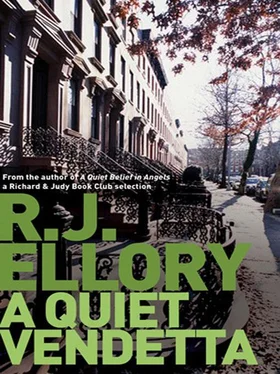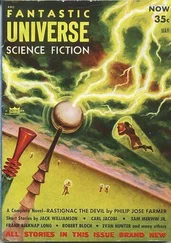Desirous, perhaps, of some complete and unqualified absolution, an absolution that would never come, he nevertheless understood that life would keep on coming every which way, and regret, disappointment, even failure – such commodities as these – are inextricably woven within the woof and warp of existence. Life was there. It was what it was, and when it bent in some fashion that was unwanted you often found that you had to bend with it. We – we people – are built of whipcord and rubber and such flexible emotions, and somehow we spring back. As we age we sometimes feel the strain, the torture of muscles that as yet have seen no motion since our youth, but though stiff, a little unyielding, they are not altogether redundant. Possibly we will never recover our entire identity, but at least a greater percentage, and for that we would be grateful. We have breathed, life has breathed back, and though the taste was bitter, we have swallowed. Choice? No, we possess no choice. We have power of decision, but often we are compromised for the obligation of rightness, rectitude, duty. These things we have suffered, yet we have continued regardless.
The district Ray saw beyond the window was rich with the past, the buildings crouched together, a barrio filled to bursting with Spanish and French-descent southerners, and the old people, the mothers and fathers, their mothers and fathers where they still lived, stood testament to the fact that tradition and heritage had nothing to do with color or creed. They had built their own, sweated their hands and brows into this earth and grown from it a timeless grapevine of beliefs and ideals that did not change, merely grew with time. This was where Ray had shared the early years of his life with his brother, and coming back here brought with it a storm of emotions that raged right into the present and defied escape. The street where his father fell to his knees as if to pray, his hands clutching his chest, his mouth agape as pecans and avocados and small ripe oranges spilled from his bag across the sidewalk and beneath the wheels of cars; the corners where Ray and Danny had hung out, sweating through many a childhood vacation, escaping chores and whippings, and older kids with stones dropped into long socks that they whirled around their wrists like the old Irish cop with the billy club that used to patrol down here; the alleyway beside the bar where he and Danny used to crouch and wait breathless for some drunk to come falling through the doorway, and when he fell they’d be there to empty his pockets, to take his bottle, a bottle filled with something that coalesced with the warm humid air and knocked them sideways; all of this, these images, forever engraved: indelible.
Ray Hartmann could remember when there was snow on Dumaine. Snow that hung from the branches of withered wisteria and mimosa and magnolia, and piled against the curb, and dropped from the eaves of houses, and through that whiteness had run the expedient streamers of youthful voices, the mittened and scarved and gloved and galoshed, the hurrying excitement attendant to seasonal novelty that we – in our age, in our reflections, in our bruised hopes and dented dreams – have somehow appeared to lose.
Everything stopped here. Carol. Jess. Luca Visceglia and the manifold legal complications with which he battled each day. The sounds changed, the shadows closed up against him, the temperature dropped.
The FBI agents had told him next to nothing, merely that his assistance was required in a matter of potential national security. From the plane they had driven him to a hotel and told him to rest for a couple of hours, and yet they had no idea of where they were really taking him. Here, a stone’s throw from where he stood looking from the window, was Dumaine: a map of his past, a fingerprint he had left behind, the sidewalks where he too had scraped his knees against life and found it rough, unforgiving, coming at him from all sides and never stopping.
After his mother’s death he’d vowed never to come back, and yet he realized that his vias, his detours, had been nothing more than a preternatural rejection of inevitability. He realized New Orleans would once more walk right through him as soon as he crossed its limits, and that sensory invasion was neither willed nor welcome.
Ray Hartmann shuddered in the breeze that found its way through the half-opened window, believed that he would always find this place abhorrent no matter the season – stinking and ripe with the smell of loose and swollen vegetation in summer, and then through fall and winter the frozen brittleness, the ghostly angularity of the trees, the picket fences that ran in non-sequitur patterns through all territories, defiant of whatever authoritarian plutocracy held sway, standing also in defiance of any sense of the aesthetic. This was a mean and hollow country, perhaps its only blessing the people themselves, holding true to the intent and determination of their ancestors who’d dragged whatever life they’d lived out of the clutches of the everglades.
He looked left, turned towards the mimosa grove he could see across the street. On a clear day, standing on a ladder from the garage, he and Danny would look out over such trees, look out over the Mississippi to the Gulf of Mexico, a band of clear dark blue, a stripe through the earth, a vein. Used to dream of sailing away, a paper boat big enough for two, its seams sealed with wax and butter, their pockets filled with nickels and dimes and Susan B. Anthony dollars saved from scrubbing wheel arches and hub caps, from soaping windscreens and windows and porch stoops for the Rousseaus, the Buies, the Jeromes. Running away, running away with themselves from Dumaine, from the intersection where bigger kids challenged them, tugged their hair, pointed sharpened fingers into their chests and called them weirdos, where they ran until the breath burst from their chests in great whooping asthmatic heaving gusts, turning down alleyways, hiding in shadows, the reality of the world crowding the edges of the safe and insular shell they had created for themselves. Danny and Ray, Ray and Danny, an echo of itself; an echo of childhood.
The distant chatter of children in the street…
The vague and indefinable sensation that, as he thinks, he’s thinking back years, that each time he thinks of these things he’s younger for the duration.
And then later, Danny long since gone, coming home from school while his mother was still alive, brief stop-overs, passing through…
Hi Mom …
Ray… you gonna stay for dinner, son ?
I already ate, Ma, ate on the way down .
She would talk a little of her day, that Mister Koenig had taken her to mass, that she’d prayed for them both and felt all the better for it. She’d talk of a show at the Saenger Theater, of dinner at the Royal Sonesta, and then suddenly she’d be reminded of Mary Rousseau.
You remember Mary Rousseau, down here a block or so when you boys were young… pretty little thing you had a crush on ?
I remember her, Ma, and I did not have a crush on her .
He would feel the pressure of his mother’s hand upon his own.
The smell of the parlor, of chicken cooking, of lavender and ointment for scrapes and burns and bruises, forever ambient of childhood, of growing, losing and learning how to love all over again.
Also leaving, for leaving was the very last thing he did.
So how goes it, son ?
It goes, Ma, it goes .
You down here on business ?
Sure am… wouldn’t come down here for any other reason .
Bad business ?
Real bad… bad as it gets .
She would look at him, this slight and frail-looking woman, though nothing could be further from the truth. One year she was assaulted by a teenager after her purse. She kicked him down an alleyway, cornered him, screamed until someone came to her assistance. Even after that she still walked out alone. She watched everything that happened through pale blue washed-out eyes, and if there was something that went down within four or five blocks from where she sat she could tell you all about it. She could tell you names, dates, places, the lies told, the actual truth. She’d stayed a widow after her husband’s death, some said because no man possessed the cojones to question her right to be alone. She was not sorry, she did not regret; she listened, advised, hoped someday to understand all that had happened and make some sense of it.
Читать дальше







![Quiet Billie - Don't mistake the enemy [СИ]](/books/421973/quiet-billie-don-t-mistake-the-enemy-si-thumb.webp)




